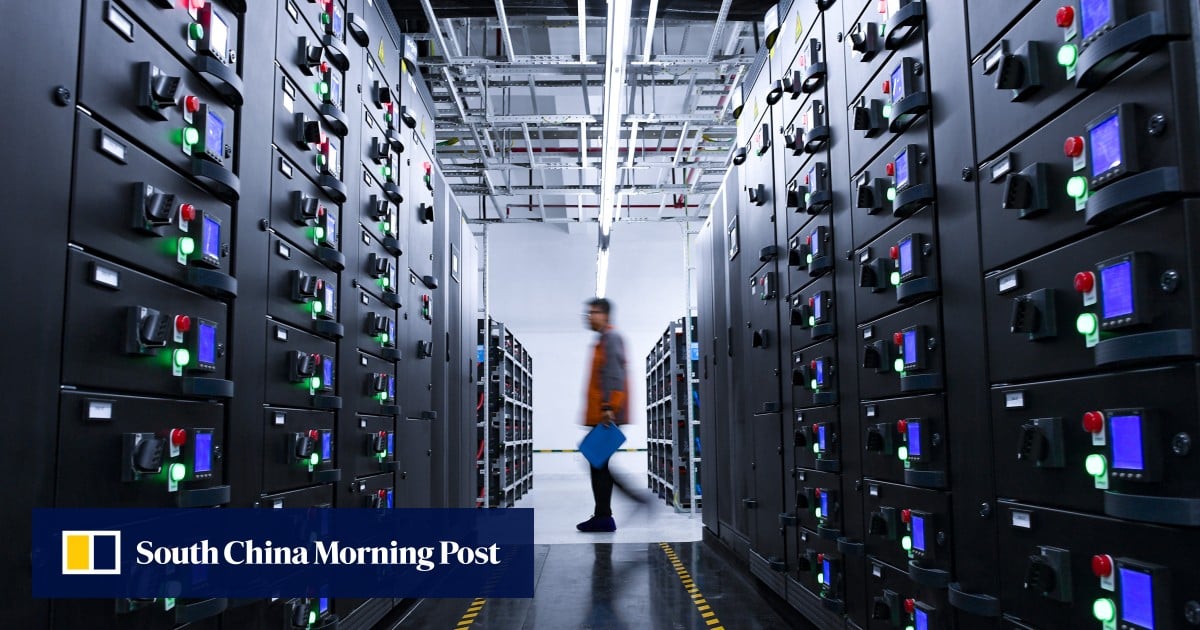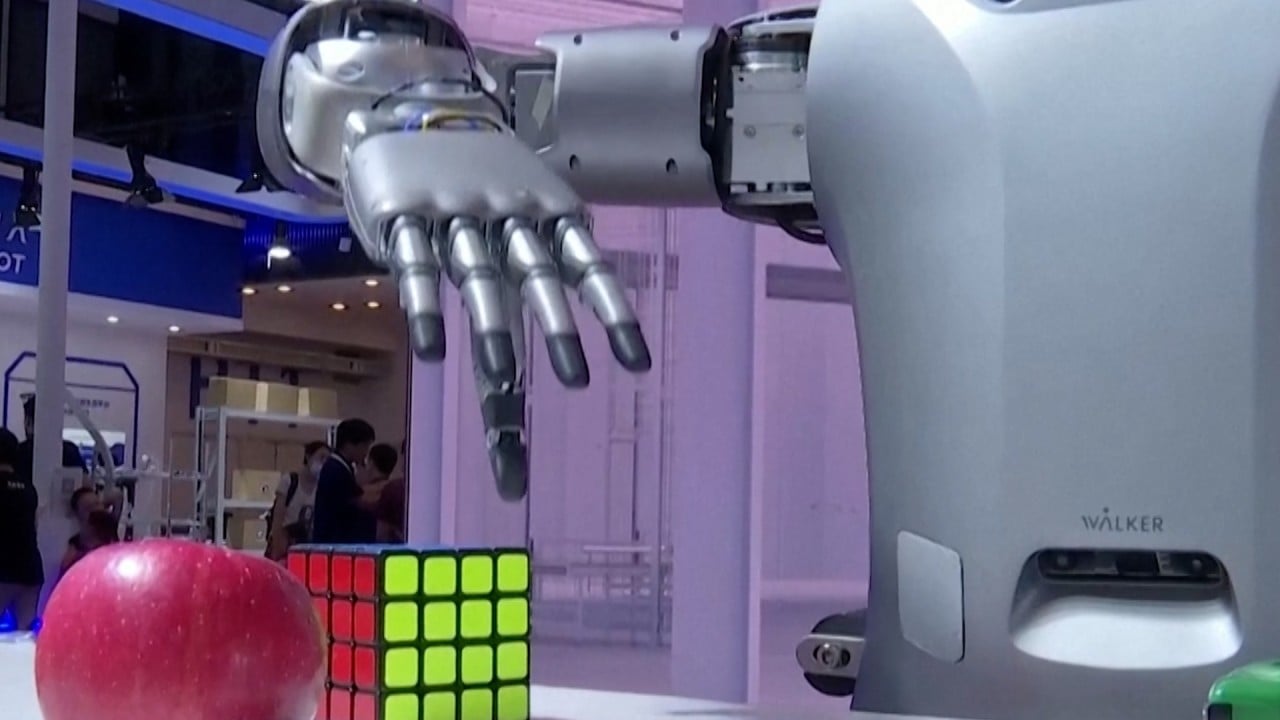China has invested 43.5 billion yuan (US$6.1 billion) on a nationwide project to build eight computing hubs, according to a Xinhua report citing a senior Chinese official, as the US-China tech war over semiconductors and artificial intelligence (AI) rages on.
The direct investment from the Chinese government had also incentivised more than 200 billion yuan in additional money from other entities, including private capital, as of the end of June, according to Liu Honglie, head of China’s National Data Bureau, who disclosed the figure during a presentation at the Big Data Expo on Thursday.
The computing hubs have a total capacity of 1.95 million server racks, with about 1.2 million racks already mounted, Liu said at the expo, which was held in the southwest city of Guiyang, capital of Guizhou province. A rack is a frame designed to hold several computing servers.
China embarked on the so-called “east data, west computing” project in 2022, with plans to build eight computing hubs in the Beijing-Tianjin-Hebei area, Yangtze River Delta area, Guangdong-Hong Kong-Macau area, Guizhou province, Chengdu-Chongqing area, Gansu province, Ningxia and Inner Mongolia.
The government-backed project aims to build a nationwide information technology network whereby data centres in China’s Western inland would process the computing workload generated in its more densely populated eastern coast areas.
The global AI frenzy has significantly boosted demand for advanced graphics processing units (GPUs) in both the US and China. High-end GPU shipments are expected to grow by 55 per cent in 2025, according to Taiwan research firm TrendForce.
Huawei Technologies is one of the Chinese companies contributing to the colossal project. It operates computing clusters running on Ascend AI chips in 19 cities across China, including Beijing, Shanghai and Shenzhen.
Huawei also has plans to bring new clusters online in major provincial capitals, including Kunming in southwestern Yunnan, Changsha in central Hunan, Changchun in northeast Jilin and Jinan in eastern Shandong.
Despite tighter US sanctions restricting GPU chip champion Nvidia from shipping its most advanced products to China, its third-largest market, the company said data centre revenue from the country was strong during its second quarter ended July 28, according to Nvidia’s second quarter results issued on Wednesday.
“Our data centre revenue in China grew sequentially in the second quarter and was a significant contributor to our data centre revenue,” Colette Kress, Nvidia’s chief financial officer, said during a post-earnings call with analysts.
However, she added that China sales as a percentage of total data centre revenue were at lower levels than before the imposition of export controls, and that the China market was expected to be very competitive going forward.
Nvidia said its data centre revenue surged 154 per cent year on year in the second quarter to US$26.4 billion, better than the 122 per cent growth rate for total revenue, which reached US$30 billion in the quarter.
The current hypergrowth in GPUs and other accelerator chips for AI will taper but the momentum will continue until it has transformed the industry, according to a note by London-based research firm Omdia.
The market has grown from under US$10 billion in 2022 to US$78 billion this year, and will reach US$151 billion in 2029, it said.


